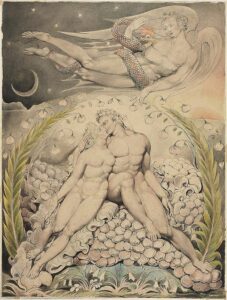Lost In Translation: Amorous Love
Oh yes, amorous love is lost in translation. While religious adherents extol divine love, and the younger crowd gravitates toward sexual gratification as peddled by the adult entertainment industry, Tina Turner’s lyrical query still echoes: “What’s love got to do with it?” But what exactly constitutes amorous love?
Amorous love isn’t the selfless, nurturing affection championed by religions or cultural norms—those that compel charitable care or concern. Nor does it align with transcendent love, the kind sought through meditative ascension, spiritual practices, or intellectual pursuits. It certainly isn’t the love directed at material indulgences like cars, cats, currency, or carnal pleasures.

This love, I assert, is the pivot upon which the world revolves. It embodies the ardent, yearning intimacy that has been the bedrock of human connection since time immemorial. Often conflated with sexual attraction, amorous love deserves to be recognized as a force distinct from mere physicality. Though it may, on occasion, lead to sexual expression, it harbors value beyond that. Yet, not everyone sees it through the same lens. One might wonder—beyond the glitz of Hollywood’s profit-driven portrayals—does anyone truly care about understanding the essence of amorous love? Are there those who seek to fathom its intricacies, giving it the thoughtful consideration it warrants rather than indulging in reckless trial and error?
Consider gravity before Isaac Newton’s insights—it was merely an unnoticed phenomenon. Apples plummeted from branches, the Earth seemed flat, and few questioned it until scientific inquiry gave meaning to what had long been overlooked. Love, similarly, has a history.

Our Neanderthal ancestors—my kin, perhaps—lacked the linguistic sophistication to articulate what we now call love. Fast-forward a few millennia, and along came St. Augustine, whose introspections reshaped humanity’s understanding of love. With his Confessions, he imbued Old Testament love with complexities that set Christianity on a path toward divine approval while sweeping sensuality under the proverbial rug.
The Jews of ancient scripture didn’t share Augustine’s rigid interpretation. But Augustine’s influence over Christian orthodoxy ushered ordinary believers into a constrained vision of love—one that conveniently served the agendas of power. Emperor Constantine, after all, needed the unwavering loyalty of Christians to win his battles.

In his Confessions, Augustine muses on the elusive nature of time: “What then is time? If no one asks me, I know: if I wish to explain it to one that asketh, I know not.” This riddle of time could just as well apply to love: “What then is love? If no one asks me, I know: if I wish to explain it to one that asketh, I know not.”
And the subject of amorous love between two ordinary humans got lost in translation.
The notion of being “lost in translation” extends far beyond mere linguistic conversion from one language to another. It captures the change of values, wisdom, and cultural nuance across generations and epochs.

British poet John Milton, in his remarkable Paradise Lost, tried to make human love whole again. William Blake later illustrated Milton’s visions. Their influence on culture was immense and is still lasting. It was then easy for the late Rev. Moon, after the Korean War, to ‘reveal’ that the Fall of Man was due to an untimely sexual act, but that passionate sexuality is an intended feature in God’s creation and not a bug.
We have not had enough Miltons and Blakes to counterbalance the many Augustinians holding out in orthodox theological seminaries.

Milton’s poetic endeavors to reconcile love have yet to counterbalance Augustine’s theological austerity. As a result, orthodox seminaries continue to propagate this rigid perspective. Nevertheless, love re-emerged in the Middle Ages through the concept of courtly love—a romantic ideal celebrated by Provençal troubadours. This form of love, often illicit, romanticized the unattainable, with gallant knights yearning for noblewomen they could seldom possess. The story of Titanic echoes this age-old theme, where fleeting passion is cherished but ultimately lost to circumstance.
The sexual revolution of the 1960s reshaped public discourse on love and intimacy. Yet, as Newton would remind us, every action invites an equal and opposite reaction. Today’s understanding of love can oscillate between liberalism and orthodoxy, depending on the conversational partner.
Were you to ask me, I’d argue that amorous love holds inherent virtue. A world devoid of it is inconceivable, for we are neither harmless wallflowers nor mechanical ants. My own upbringing, anchored by a secure attachment to my mother, gifted me with a positive outlook on love and life. Not everyone shares this fortune, but it is a reminder that amorous love deserves a place in our lives.
Permit me one final indulgence: Imagine a world where Adam and Eve, free of sin, engaged in procreation devoid of desire and passion—an existence without lust or yearning and performed solely to fulfill divine expectations. Augustine believed in such a paradisiacal vision, where even intimate acts would resemble the casual kindness of a schoolyard gesture—a high schooler scratching another’s back out of mere courtesy during lunch break. A strange paradise indeed.

For a deeper exploration of this tension between love and theology, I recommend Stephen Greenblatt’s The Rise And Fall Of Adam And Eve, (2017) W. W. Norton & Company, Inc.
Love, in all its permutations, weaves together the fabric of human existence. While some love fosters belonging and connection, others leave heartbreak in their wake. There are no guarantees, nor were there ever. Even divine love, idealized as it may be, is not without its shadows—just ask the Crusaders of the Middle Ages or the victims of ecclesiastical abuse.
And yet, the show must go on, they say. The journey toward understanding and nurturing genuine human love is one worth undertaking. Only by doing so can we hope to thrive and prosper.
True and real love, as opposed to the abstract ideals of God’s love, is delicate and demands attentive care. Humanity can discover them—not by placing the burden of hope on a select few role models, but by embracing love itself.
Next, ABCs of Love –
4. The Big Question: Can Love Last?
Can real love last and be true then as such? Understanding oneself and engaging in a beautiful dance of enchantment and surrendering to a partner are prerequisites to lasting love.